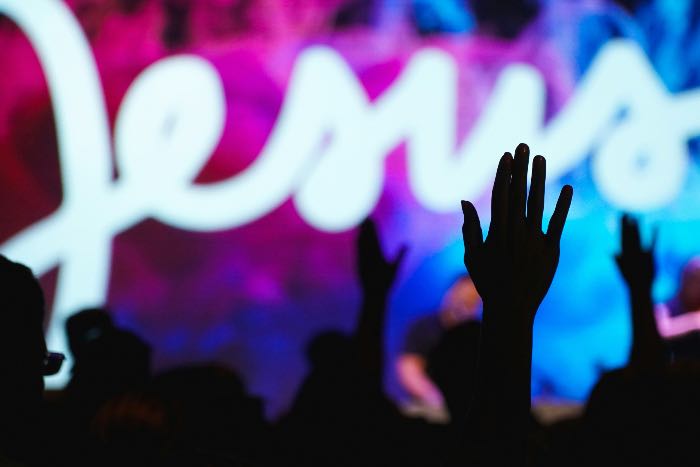
I recently finished Tim Alberta’s powerful book, The Kingdom, the Power, and the Glory: American Evangelicals in an Age of Extremism. It is a thorough and thoughtful look at evangelicalism that accurately explains and bemoans the moment and what has brought us here.
In all of his analysis, I waited for one specific idea—a piece that would round out his analysis—but it never came.
I waited for him to explore, the rise in evangelicalism as worldview rather than religious identity.
In short, many conservatives are calling themselves evangelical. Which effects both Republican and Evangelical rosters.
Some of it is obvious.
Alberta’s book deftly portrays the radicalization of evangelicalism, which had, decades ago, become a heavily conservative theological marker. A way of seeing the church and the world which was relatively ideologically consistent.
In the time since 2016, however, it has driven far away from such consistency, seeming to move the religious ideology to match the shifting political ideology.
In this way, Alberta finds an easy scapegoat in “politics”. It becomes the nebulous idea and corrupting influence. He can bemoan the impact of politics and then offer the problem to “both sides”. But this is both too convenient and less than accurate.
Rather than simply blame the impact of politics like an invading bogeyman, I’m drawn to the opposite vision. That the church isn’t being tainted by politics. Evangelicalism itself has a toxic relationship with both church and politics.
This is why I expected him to go there.
The book was so good at citing surveys and naming the problems facing evangelicalism and the country from evangelicalism. And yet he couldn’t fully interrogate the very concept of the religious doctrine we call evangelicalism.
Since its own negative history with slavery and reconstruction to the intentional use of evangelical Christianity since the 1960s to oppose equal rights and later, abortion, evangelicalism has never been without Alberta’s understanding of a political problem. Is it really that fair to say it is now a problem?
But even this assessment misses what is so curious about now. And why Alberta and so many others are upset now more than before.
He sees a now problem. But just can’t face it head on.
It isn’t just that right-wing churches exist. Or even the pain of seeing them steal sheep from solidly conservative historic churches. It is that the very nature of the Christianity at play is unrecognizable as Christianity.
Because it isn’t.
I will hazard “no true scotsman” to say it plainly. The Christ of the assault rifle isn’t Jesus. It is the antichrist.
It is dangerous to call this claim I am making “mere opinion” while also holding to standards of objectivity. For, to do so, we would be far more selective with standards (so as to call this form of evangelicalism Christlike) than I am being here!
There is little actually Christian about these churches precisely because they aren’t seeking to be religious (or political in Alberta’s terms), but in fact cultural institutions.
This isn’t suddenly wedding Christianity and politics because the two are already essentially inseparable. To call Christ “Lord” is to say Caesar is not. Our religion has never not been political.
Today’s evangelicalism, however, offers the pursuit of cultural supremacy and ultimately hegemony under a cultural Christianity they call Evangelical.
This isn’t mere civic religion. The stuff we tolerate when presidents say “God bless America” and hand troops Bibles when they enlist. It isn’t public prayer and a recognition of unifying traits among all of us in light of our tremendous diversity.
This is cultural religion, tied to blood, lineage, and particular customs and practices with no roots in faith. It is the same vision that despised reconstruction because it dared force southerners to embrace equality in a post-slavery era.
And it despises offering equality to anyone today: racial and ethnic minorities, sex and gendered minorities (including women), the disabled, immigrant, children, the mentally ill, and those experiencing poverty and homelessness.
Which means, obviously:
Cultural Christianity is White Supremacy.
Its most obvious component is the White Power Movement, which offered the material and intellectual support for this rise long before 2016. But it fueled much of the normalizing of these fringe efforts into mainstream evangelicalism.
[See also Christian Identity Movement.]
All of this is in plain sight.
But the questions we ask keep going back to the good ol’ days when evangelicals weren’t crazy. Which is sort of true. But they’re missing what’s obvious.
We just need to contend with the sense that it wasn’t one little shift. One presidential candidate. Or one political figure or even movement. It was a marriage long ago. One that we tolerated for 150 years.
And what is different now is this:
Right-wingers aren’t getting baptized into the church in the name of the Trinity. And it has nothing do with believing Jesus is Lord.
People are getting baptized into evangelicalism.
To be part of a Cultural Christianity that can overpower a pluralistic society of inclusion, democratic governance, and religious diversity.
They are becoming evangelicals.
And many aren’t going to church. But the ones who do are finding support for guns over plowshares and empire over the Kin-dom. They’ll hear about a Jesus who hates immigrants—unlike the Jesus in scripture who tells us to protect them.
The Church doesn’t preach such a distorted gospel. But evangelicals have spent the last half century convincing the world to think evangelicalism is Christianity.
